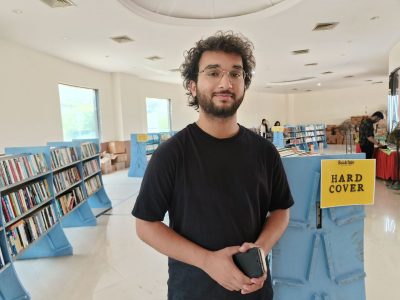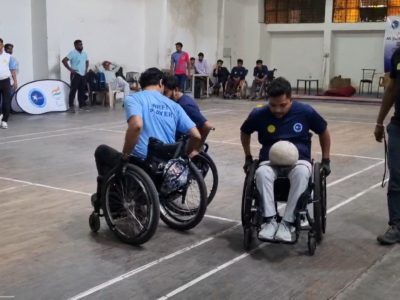Lack of sex education, misogynistic Hindi film songs and improper socialisation of teenagers will only perpetuate locker room talk well into adulthood
I was in Class 10 in Shivpuri. All the boys in my class were discussing the new girl Prakriti. The science teacher was absent that day. Amid the noisy chatter, Atul came from the last bench to mid-classroom to tell us that he likes Prakriti.
I knew that she used to cycle to school with him because he was her neighbour. I retorted, “Doesn’t she call you her brother?” He smiled and said, lowering his voice, “Gandhi ji ki yojna behan bana ke *** (It’s Gandhiji’s policy to *** a girl, calling her his sister).
All boys burst into laughter; I too was wryly smiling until Prakriti noticed me. My smile vanished as I saw her angry gaze and tears in her eyes. I stopped smiling and start regretting being part of the mindless chatter. The boys went on talking about her dress and whatnot.
I was silent. My gut instinct was telling me that what we were doing is wrong. I didn’t realise then that there is a term for it — misogyny — and that we were also defaming the Father of the Nation. Nor did she, though she heard a part of that conversation.
After school hours, I approached Prakriti. She looked at me scornfully and said, “I didn’t know you guys talk about me like that”, got on her bicycle and went home. We were good friends till then and it was Prakriti who always initiated our chats. Perhaps that’s why I never valued her friendship.
I regretted my act for the next few days but didn’t have courage to say sorry. In a school where the division between boys and girl is strict, everyone was supposed to be addressed as brother or sister. Finding a friend of the opposite gender was an achievement and I lost it with a minute’s carelessness. We did not talk the whole year.
I also remember that when a girl in my class was menstruating, we joked that her skirt was bloodstained because she was sexually active. This was in Class 8. This display of ignorance was because we were never given sex education. ‘Those’ chapters in biology were merely notes that we crammed to pass exams. During my entire schooling, I never heard anyone say that man and woman are equal.
After 10th Board exams, I had to change schools as I opted for science and it was tough for my father to arrange money for both the private tuitions and the private school. I switched to a government boys school where only a nominal fee was charged. There I found misogyny flourishing. Until then, I never commented on a girl’s character but now I became judgemental, especially because I had no contact with girls at that point of time. They became the ‘other’.
Meanwhile, Prakriti started dating a guy who was in the same school as ours till 10th but in English medium. I felt pretty bad because her boyfriend used to joke about her and boastfully talk about his other girlfriends. Mixed up in these negative reactions was the desire to be like him.
My world changed. We looked at co-ed schools with jealousy, as we were students of Hindi medium government boy’s school, which is ranked way down the social ladder. But I found we were not as misogynistic as other school students. Many of my classmates were from rural backgrounds, staying away from family, a handful were even married. They never made a female teacher uncomfortable because they feared the consequences. And discussions about sex were more or less explanatory, where a married student would explain without glee or boastfulness. Another important factor that worked to moderate our behaviour was the knowledge that our parents would be held responsible for our conduct by the school authorities. That, in some way, tamed us.
The “bois locker room” incident in which boys (some were underage) were commenting on looks and bodies of underage girls, is not limited to south Delhi’s elite schools. Such locker room mentality exists in every school. In the latter half of their teens, both boys and girls are affected by hormonal changes. Non-availability of proper sex education, Hindi films that objectify women and easy access to pornography make boys feel entitled and predatory.
Boys are in some ways ‘victims’ too, because we are deprived of this equal and reciprocal relationship with the opposite gender due to social segregation and patriarchy.
When I came to Delhi for graduation, like most students from smaller towns, I experienced culture shock. I never thought a girl would sit on the same bench with me in the classroom. Women had access to public spaces; I heard people proclaim that both the genders had equal rights.
Another difference I noticed was that many Delhi-ites believed in strict division between public and private lives. This was different from what I saw in Shivpuri. I never knew women were facing discrimination in the city too, for I could see women participating with men in every activity. I no longer felt entitled — in fact, I felt inferior because of the language gap and my lower middle class status.
Gradually, it became clear that an infinite cycle of misogyny pervades society because of Bollywood songs, our colloquial and slang language, art — and I sometimes feel it is far worse than in small towns. Discrimination in the city is hidden. If students of rich schools are objectifying girls, it means society moulded them to do so. Their families are equally responsible for their behaviour.
Once one of our male friends was caught cheating on his girlfriend. Initially, all of us stopped talking to him but later he came back in our lives. We didn’t have a derogatory term for his act except for “ladkibaaz” (womaniser), which isn’t even used derisively many a time.
But if a girl was promiscuous, we had a list of derogatory words for her. It is a topic worthy of broader academic inquiry but there is no doubt that the language in which we communicate in our peer groups is patriarchal.
So it can be said that school children are victims of a vicious circle that needs to be broken. #Metoo exposed the elite class, which is as misogynistic as boys like us who studied in Hindi medium schools when we were teenagers. The broader discussion about equality must penetrate our syllabuses and classroom culture.
(All names have been changed to protect anonymity)





